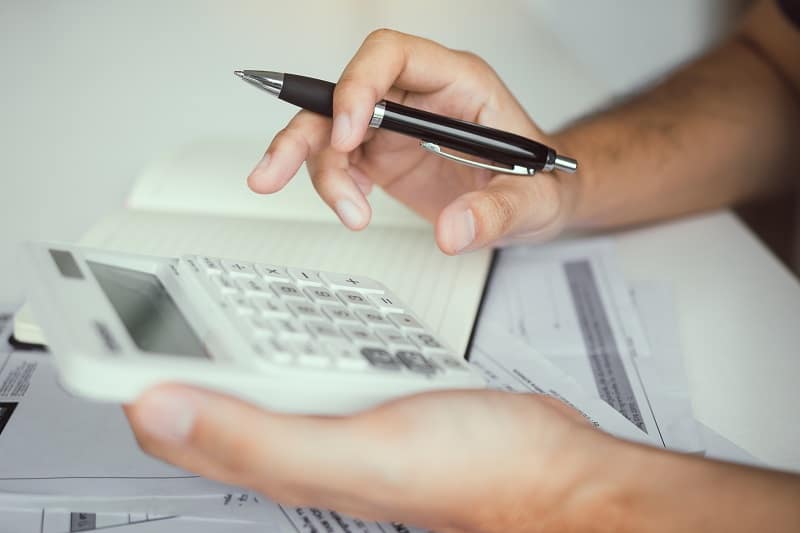A common question posed to accountants by their clients is, ‘how do tax deductions work?’ Unfortunately, confusion often surrounds the topic, as individuals are naturally eager to lower their amount of tax payable (and receive a higher refund) at the end of a financial year but do not want to risk making false claims on their returns.
To help, we have compiled the only guide you will ever need to understand how tax deductions work, how they are calculated, who can claim them, and everything in between.
What Exactly Is a Tax Deduction?
The Australian government taxes a portion of our income earned each financial year to fund various public expenditures, such as social security, health care, and education. To determine the amount payable, we must each complete a tax return outlining the amounts we have earned through salary or wages, government payments, and investments, as well as any expenses made directly to earn that income. These expenses are known as tax deductions.
But how do tax deductions work? Well, individuals won’t receive all the money they have outlaid back, but once the expenses are totalled, they are deducted from our income, lowering the amount of tax payable.

Example of How Tax Deductions Work
Consider someone who earned a taxable income of $50,000 for the financial year. Their estimated tax payable would be approximately $6,717, and if they paid $7,000 in tax throughout the year, they would likely be set to receive a $283 refund.
However, after including $3,000 in tax deductions from work-related expenses, their taxable income would be lowered to $47,000. Estimated tax payable would now only be $5,742, meaning the refund climbs to $1,258 (an extra $975).
Who Can Claim Tax Deductions?
The government makes a range of expenses available as tax deductions to incentivise the public to invest further in their careers and other ventures, stimulating the economy and strengthening our financial independence.
Individuals can claim tax deductions within their annual return as long they meet certain conditions enforced by the Australian Taxation Office (ATO). For example, an individual must be the person who paid the money for the expense. They cannot claim on behalf of another nor be reimbursed by an employer or partner.
The expense must also have a clear, direct relation to how you earn your income, such as purchasing necessary tools and equipment. All individuals, even those within causal employment arrangements, can therefore claim these tax deductions.
Requirements for Record Keeping
It is important to maintain proper records of every tax deduction you plan to include in your return. In fact, the ATO states records, such as receipts and invoices stating a supplier’s name, and the amount, date and nature of the purchase, must be kept for five years after the date your tax return was lodged to substantiate your claims, should you ever be audited. Other specific deductions may even require further evidence, such as a travel diary. Records can either be kept in paper or digital formats, but as they are designed to prove the payment was made, statements from your bank or credit card company will not suffice should you be unable to provide a receipt.
This can make tax deductions a tricky aspect of your finances to constantly manage year-to-year. Fortunately, a registered tax agent or accountant can provide the appropriate information on what you are entitled to claim, as well as assist with your record-keeping obligations.
The Different Types of Tax Deductions
Now that we have clarified how tax deductions work and who can claim them, we’ll explore the available types. While the number of tax deductions can vary, there are some key categories under which they can be defined.
Work-Related Expenses
Work-related expenses are largely those described above, relating to any expenses incurred whilst performing income-earning activities. Examples include:
- Travel and transportation
- Working from home
- Self-education within your field
- Tools and equipment
- Clothing with associated laundry or dry-cleaning
Other Deductions
While not technically related to earning your employment income, the ATO outlines other deductions that individuals are entitled to claim. These are further expenses the government wishes the public would explore to promote more accurate financial record-keeping, more investment, and more security outside of state and federal support. They include:
- ATO Interest
- Expenses related to managing your tax affairs
- Donations and gifts
- Expenses related to earning interest, dividends, or other investment income
- Personal contributions made to superannuation accounts
- Income protection insurance
How Tax Deductions Are Calculated
Once you have identified the tax deductions you are entitled to claim, further calculations may be required to ascertain the actual amount you can include in your tax return.
For example, should a work-related expense refer to a purchase with both a professional and personal element, only a percentage reflective of the amount used for work-related purposes can be claimed as a deduction? This is especially difficult for working from home tax deductions, such as shared internet and telephone expenses.
To assist, there are several ways that tax deductions can be calculated, including the fixed-rate and actual cost methods. These can be difficult to navigate, though, especially on your first attempts. Therefore, should you ever feel unsure, it is always wise to consult with a qualified accountant regarding how tax deductions are calculated to avoid submitting any errors on your return.
A Quick Guide on Preparing and Claiming Your Tax Deductions
Waiting until just before tax time isn’t the most prudent approach to prepare for how you can claim tax deductions. Instead, as you make purchases throughout the year, be sure to file or digitise the associated documents in secure, organised locations. This can either reside with you or in an ongoing relationship with your accountant. Collect and retain everything from work-related expenses, those incurred from rental properties and other investments, and further expenses you may feel are eligible based on the information we have covered on how tax deductions work.
At the end of the financial year, you can either attempt to apply the necessary calculations yourself or enlist the services of an accountant. They will progress through your documents to apply the appropriate methods and ensure your deductible amount is properly calculated. This amount can then be entered into your return to lower your taxable amount and maximise your potential refund.
Key Takeaways on How Tax Deductions Work
- Tax deductions are expenses related directly to earning your income that is deducted from your taxable income, such as working from home expenses and tools and equipment
- Deductibles can also be expenses set to improve your financial position, including personal superannuation contributions, and expenses related to the management of taxation affairs
- Anyone can claim deductibles, but they must be the person who made the payment in relation to their own circumstances
- Documents such as receipts and invoices must be kept for at least five years after the attributable tax return has been lodged
- Should you not feel confident in compiling your tax deductions or on how they should be calculated and claimed, consult a trusted accountant or tax advisor to assist with your affairs
Disclaimer:
Please note that every effort has been made to ensure that the information provided in this guide is accurate. You should note, however, that the information is intended as a guide only, providing an overview of general information available to property buyers and investors. This guide is not intended to be an exhaustive source of information and should not be seen to constitute legal, tax or investment advice. You should, where necessary, seek your own advice for any legal, tax or investment issues raised in your affairs.






